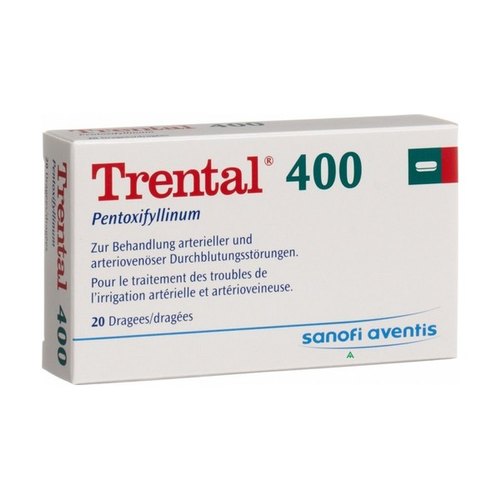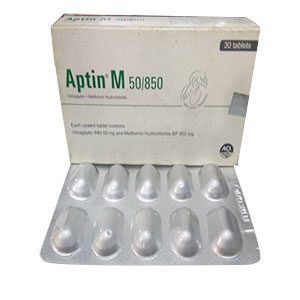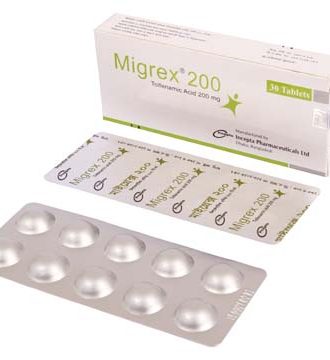Subtotal: ৳ 5.02
Trental (Tab) 400mg
৳ 15.11
Indications
Pentoxifylline is indicated for the treatment of peripheral vascular disease evident as intermittent claudication, venous leg ulcers, Pentoxifylline can improve function and symptoms but is not intended to replace more definitive therapy, such as surgical bypass, or removal of arterial obstructions when treating peripheral vascular disease.
Therapeutic Class
Peripheral Vasodilator drugs: Intermittent Claudication
Pharmacology
Pentoxifylline and its metabolites improve the flow properties of blood by decreasing its viscosity. In patients with chronic peripheral arterial disease, this increases blood flow to the affected microcirculation and enhances tissue oxygenation. The precise mode of action of pentoxifylline and the sequence of events leading to clinical improvement are still to be defined. Pentoxifylline administration has been shown to produce dose-related hemorrheologic effects, lowering blood viscosity, and improving erythrocyte flexibility. Leukocyte properties of hemorrheologic importance have been modified in animal and in vitro human studies. Pentoxifylline has been shown to increase leukocyte deformability and to inhibit neutrophil adhesion and activation. Tissue oxygen levels have been shown to be significantly increased by therapeutic doses of pentoxifylline in patients with peripheral arterial disease.
Dosage & Administration
The usual dosage of Pentoxifylline tablet is one tablet (400 mg) two to three times a day with meals. While the effect of Pentoxifylline tablet may be seen within 2 to 4 weeks, it is recommended that treatment be continued for at least 8 weeks.
Digestive and central nervous system side effects are dose related. If patients develop these effects it is recommended that the dosage be lowered to one tablet twice a day (800 mg/day). If side effects persist at this lower dosage, the administration of Pentoxifylline tablet should be discontinued.
Interaction
Patients on warfarin should have frequent monitoring of prothrombin times, while patients with other risk factors complicated by hemorrhage (e.g., recent surgery, peptic ulceration) should have periodic examinations for bleeding including hematocrit and/or hemoglobin. Concomitant administration of Pentoxifylline and theophylline-containing drugs leads to increased theophylline levels and theophylline toxicity in some individuals. Such patients should be closely monitored for signs of toxicity and have their theophylline dosage adjusted as necessary. Pentoxifylline has been used concurrently with antihypertensive drugs, beta blockers, digitalis, diuretics, antidiabetic agents, and antiarrhythmics, without observed problems. Small decreases in blood pressure have been observed in some patients treated with Pentoxifylline; periodic systemic blood pressure monitoring is recommended for patients receiving concomitant antihypertensive therapy. If indicated, dosage of the antihypertensive agents should be reduced.
Contraindications
Pentoxifylline should not be used in patients with recent cerebral and/or retinal hemorrhage or in patients who have previously exhibited intolerance to this product or methylxanthines such as caffeine, theophylline, and theobromine.
Side Effects
Cardiovascular– dyspnea, edema, hypotension.
Digestive– anorexia, cholecystitis, constipation, dry mouth/thirst.
Nervous– anxiety, confusion, depression, seizures.
Respiratory– epistaxis, flu-like symptoms, laryngitis, nasal congestion. Skin and Appendages- brittle fingernails, pruritus, rash, urticaria, angioedema.
Special Senses– blurred vision, conjunctivitis, earache, scotoma.
Miscellaneous– bad taste, excessive salivation, leukopenia, malaise, sore throat/swollen neck glands, weight change.
Digestive– anorexia, cholecystitis, constipation, dry mouth/thirst.
Nervous– anxiety, confusion, depression, seizures.
Respiratory– epistaxis, flu-like symptoms, laryngitis, nasal congestion. Skin and Appendages- brittle fingernails, pruritus, rash, urticaria, angioedema.
Special Senses– blurred vision, conjunctivitis, earache, scotoma.
Miscellaneous– bad taste, excessive salivation, leukopenia, malaise, sore throat/swollen neck glands, weight change.
Pregnancy & Lactation
Pentoxifylline should be used during pregnancy only if the potential benefit justifies the potential risk to the fetus. Pentoxifylline and its metabolites are excreted in human milk. Because of the potential for tumorigenicity shown for pentoxifylline in rats, a decision should be made whether to discontinue nursing or discontinue the drug, taking into account the importance of the drug to the mother.
Precautions & Warnings
Patients on warfarin should have frequent monitoring of prothrombin times, while patients with other risk factors complicated by hemorrhage (e.g., recent surgery, peptic ulceration, cerebral and/or retinal bleeding) should have periodic examinations for bleeding including, hematocrit and/or hemoglobin.
Use in Special Populations
Pediatric use: Safety and effectiveness in pediatric patients have not been established.
Overdose Effects
Overdosage with Pentoxifylline has been reported in children and adults. Symptoms appear to be dose related. Flushing, hypotension, convulsions, somnolence, loss of consciousness, fever, and agitation occurred. In addition to symptomatic treatment special attention must be given to supporting respiration, maintaining systemic blood pressure, and controlling convulsions. Activated charcoal has been used to absorb Pentoxifylline in patients who have overdosed.
Storage Conditions
Store in a cool and dry place, away from light. Keep out of reach of children.

 Adelax (Tab)
Adelax (Tab) 




Reviews
There are no reviews yet.